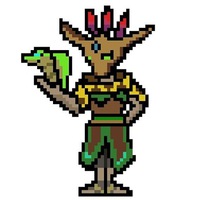
Что такое фольклор? напишите объяснение
 0
0
 0
0
Ответы на вопрос
 Внимание! Ответы на вопросы дают живые люди. Они могут содержать ошибочную информацию, заблуждения, а также ответы могут быть сгенерированы нейросетями. Будьте внимательны. Если вы уверены, что ответ неверный, нажмите кнопку "Пожаловаться" под ответом.
Внимание! Ответы на вопросы дают живые люди. Они могут содержать ошибочную информацию, заблуждения, а также ответы могут быть сгенерированы нейросетями. Будьте внимательны. Если вы уверены, что ответ неверный, нажмите кнопку "Пожаловаться" под ответом.

 0
0
 0
0

 0
0
 0
0

What is Folklore?
Folklore refers to the traditional beliefs, customs, stories, songs, and dances that are passed down through generations within a particular culture or community. It encompasses the collective wisdom, knowledge, and artistic expressions of a group of people. Folklore is often transmitted orally or through performance and is deeply rooted in the cultural heritage of a society.
Folklore can take various forms, including myths, legends, fairy tales, proverbs, riddles, folk songs, folk dances, and traditional rituals. It reflects the values, traditions, and social practices of a community, providing insights into their history, worldview, and identity.
Folklore serves several important functions:
1. Preservation of Cultural Heritage: Folklore plays a crucial role in preserving and transmitting cultural traditions from one generation to another. It serves as a repository of collective memory, ensuring that cultural practices, stories, and beliefs are not lost over time.
2. Identity and Community Building: Folklore helps to shape and reinforce a sense of identity and belonging within a community. It fosters a shared cultural heritage and strengthens social cohesion by promoting a sense of unity and common values.
3. Entertainment and Recreation: Folklore provides entertainment and serves as a source of enjoyment for both performers and audiences. Folk songs, dances, and stories are often performed during festivals, celebrations, and social gatherings, creating a vibrant and lively atmosphere.
4. Education and Moral Lessons: Many folktales and legends contain moral lessons and teach important values. They often convey wisdom, ethical principles, and societal norms, offering guidance on how to navigate life's challenges and make moral choices.
5. Expression of Creativity: Folklore is a creative expression of the human imagination. It showcases the artistic talents of individuals within a community and allows for the exploration of different themes, emotions, and experiences.
It is important to note that folklore varies across different cultures and regions, reflecting the unique histories, traditions, and beliefs of each community. It continues to evolve and adapt to changing times while retaining its core elements and cultural significance.
 0
0
 0
0
Топ вопросов за вчера в категории Литература
Последние заданные вопросы в категории Литература
-
Математика
-
Литература
-
Алгебра
-
Русский язык
-
Геометрия
-
Английский язык
-
Химия
-
Физика
-
Биология
-
Другие предметы
-
История
-
Обществознание
-
Окружающий мир
-
География
-
Українська мова
-
Информатика
-
Українська література
-
Қазақ тiлi
-
Экономика
-
Музыка
-
Право
-
Беларуская мова
-
Французский язык
-
Немецкий язык
-
МХК
-
ОБЖ
-
Психология
-
Физкультура и спорт
-
Астрономия
-
Кыргыз тили
-
Оʻzbek tili




















